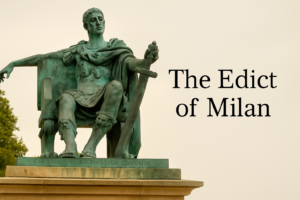Introduction
Taoism, also known as Daoism, is a profound and ancient Chinese philosophy and religion that emphasizes living in harmony with the Tao, which translates to “The Way” or “The Path.” Founded in the 6th century BCE, primarily attributed to the sage Laozi, Taoism offers a unique approach to understanding the universe, human nature, and the art of living. This article explores the origins, core beliefs, practices, and cultural impact of Taoism.
Origins and Development
Taoism’s origins are deeply rooted in ancient Chinese thought and spirituality. The foundational text of Taoism, the Tao Te Ching, is traditionally attributed to Laozi, a semi-legendary figure reputed to have lived during the 6th century BCE. Laozi’s teachings, recorded in this text, emphasize the principles of the Tao and offer guidance on how to live in accordance with it.
Another key text in Taoism is the Zhuangzi, attributed to the philosopher Zhuangzi, who lived around the 4th century BCE. The Zhuangzi complements the Tao Te Ching by providing further elaboration on Taoist philosophy through allegory, humor, and paradox.
Taoism evolved over the centuries, integrating various elements of Chinese spirituality, folklore, and cosmology. It has been practiced both as a philosophical system and as a religious tradition with temples, rituals, and a pantheon of deities.
Core Beliefs and Philosophy
Taoism is characterized by several core beliefs and concepts:
– Tao (The Way): The Tao is the fundamental principle that underlies and unites all things in the universe. It is both the source and the ultimate nature of existence. The Tao is ineffable and transcendent, beyond the grasp of ordinary understanding. Living in harmony with the Tao involves aligning oneself with its natural flow and rhythms.
– Wu Wei (Non-Action or Effortless Action): Wu Wei is the principle of acting in accordance with the natural flow of the Tao without force or resistance. It emphasizes spontaneity and minimal effort, suggesting that the most effective way to achieve goals is through aligning with the natural order rather than trying to control or alter it.
– Yin-Yang: The Yin-Yang symbol represents the dualistic nature of reality, where opposing forces are interdependent and complementary. Yin (the dark, passive, and receptive aspect) and Yang (the light, active, and creative aspect) are seen as interconnected and constantly interacting. The balance between Yin and Yang is crucial for maintaining harmony in both the cosmos and individual lives.
– Naturalism and Simplicity: Taoism values simplicity, naturalness, and spontaneity. It teaches that by simplifying one’s life and embracing nature’s inherent order, one can achieve greater harmony and fulfillment. This approach contrasts with more structured and formal approaches to life and spirituality.
– Immortality and Spiritual Cultivation: In religious Taoism, there is a focus on achieving physical and spiritual immortality through practices such as meditation, alchemy, and ritual. The pursuit of immortality is often seen as a metaphor for spiritual enlightenment and union with the Tao.
Worship and Practices
Taoist practices are diverse and reflect the philosophy’s emphasis on living in harmony with the Tao:
– Meditation and Contemplation: Meditation is a central practice in Taoism, used to cultivate inner peace, connect with the Tao, and achieve spiritual insight. Techniques may include sitting in stillness, focusing on the breath, and visualizing the flow of energy.
– Tai Chi and Qigong: Tai Chi and Qigong are movement practices that align with Taoist principles. These exercises emphasize slow, flowing movements and breath control, promoting physical health and spiritual balance.
– Rituals and Offerings: In religious Taoism, rituals and offerings are made to deities and spirits to seek their favor and guidance. Taoist temples often host ceremonies that involve chanting, incense, and symbolic offerings.
– Feng Shui: Feng Shui, the practice of arranging physical spaces to harmonize with the flow of energy (qi), has roots in Taoist thought. It aims to create environments that support health, prosperity, and well-being.
Cultural Impact
Taoism has had a significant impact on Chinese culture and beyond:
– Philosophy and Science: Taoist philosophy has influenced various fields of Chinese thought, including medicine, astronomy, and martial arts. The concept of balance and harmony is evident in traditional Chinese medicine and the practice of martial arts like Tai Chi.
– Art and Literature: Taoism has inspired numerous works of art, literature, and poetry. The Tao Te Ching and Zhuangzi have had a lasting influence on Chinese literature and have been studied and translated worldwide.
– Environmentalism: Taoism’s emphasis on living in harmony with nature has contributed to contemporary environmental and ecological movements. The philosophy’s respect for the natural world and its rhythms resonates with modern environmental ethics.
Criticism and Controversies
While Taoism is respected for its philosophical depth and spiritual insights, it has faced some criticism:
– Religious Practices: Some critics view religious Taoism’s rituals and practices as superstitious or outdated, especially when compared to more contemporary spiritual practices.
– Political Influence: Taoism, like many religions, has faced political challenges, particularly during periods of state control and suppression in China.
Global Reach and Future Directions
Taoism has gained recognition and practice outside of China, influencing spiritual and philosophical thought globally. As interest in Eastern philosophies grows, Taoism continues to attract followers and scholars interested in its unique approach to life and spirituality. The tradition’s emphasis on balance, harmony, and effortless living resonates with contemporary global concerns and continues to offer valuable insights.
Conclusion
Taoism offers a profound and holistic approach to understanding and living in accordance with the natural order of the universe. Its teachings on non-action, balance, and simplicity provide a pathway to achieving harmony and fulfillment. Despite facing challenges and criticisms, Taoism remains a vital and influential tradition, contributing to the rich tapestry of global spiritual and philosophical thought.













